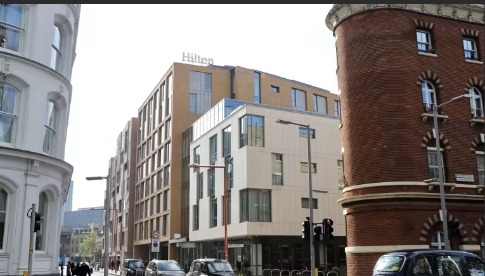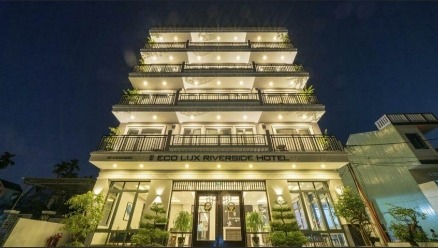Don't wanna be here? Send us removal request.
Text
1.Hilton London Bankside
Energy Conservation :Hilton London Bankside uses energy-efficient lighting systems and automated energy management systems to reduce overall energy consumption.
Waste Transformation :The hotel has an on-site waste transformation system that converts food waste into compost, reducing landfill contributions and supporting local green spaces.
Hazardous Substances Management :Hilton London Bankside adheres to strict guidelines for hazardous substances, ensuring proper disposal and minimal environmental impact.
Sustainable Transport :The hotel promotes the use of sustainable transport by providing guests with electric vehicle charging stations and bike rental services.
Market Factors :Hilton London Bankside leverages its sustainable practices as a key differentiator in the competitive hotel market, appealing to eco-conscious travelers and setting industry standards.

2.Eco Lux Hotel
Energy efficiency: Implement solutions that reduce energy consumption and take advantage of natural resources; technologies such as heat pumps for air conditioning and DHW, or photovoltaic panels for electricity generation, which are achieved thanks to the use of renewable energies such as solar or aerothermal energy.
Waste Transformation: This involves strategies like recycling, composting, and upcycling to minimize waste generation and maximize resource efficiency.
Hazardous Substances Management: Ensuring proper handling, storage, and disposal of hazardous materials to mitigate environmental and health risks.
Sustainable Transport: Encouraging guests and staff to use eco-friendly transport options such as electric vehicles, bicycles, or public transit, reducing carbon emissions.
Market Factors: Adapting to market trends and consumer demand for sustainable practices, such as sourcing locally produced goods, supporting fair trade, and minimizing environmental impact throughout operations.

3.Fairmont Hotel & Resort
Energy Conservation: Fairmont implements energy-efficient practices across its properties, including LED lighting and HVAC systems. Waste Transformation: They focus on reducing waste through recycling programs and composting initiatives. Hazardous Substances Management: Fairmont ensures proper disposal and management of hazardous materials to minimize environmental impact. Sustainable Transport: They offer electric vehicle charging stations and promote alternative transportation options. Market Factors: Fairmont integrates sustainability into its brand identity, attracting eco-conscious travelers.

4.Kimpton Hotel & Restaurant
Energy Conservation: Kimpton uses energy-saving technologies and practices, such as smart thermostats and energy-efficient appliances. Waste Transformation: They prioritize waste reduction through recycling programs and partnerships with local composting facilities. Hazardous Substances Management: Kimpton follows strict protocols for handling and disposing of hazardous substances to protect the environment. Sustainable Transport: They encourage guests to use bicycles and public transportation, and some locations offer hybrid vehicle rentals. Market Factors: Kimpton's sustainability efforts resonate with guests seeking environmentally friendly accommodations.

5.Hotel Brooklyn Bridge
Energy Conservation: 1 Hotel Brooklyn Bridge utilizes energy-efficient lighting and HVAC systems throughout the property.
Waste Transformation: They implement extensive recycling programs and utilize composting to minimize waste.
Hazardous Substances Management: The hotel strictly manages and disposes of hazardous materials to prevent environmental harm.
Sustainable Transport: They offer guests bicycles for local travel and have electric vehicle charging stations onsite.
Market Factors: 1 Hotel Brooklyn Bridge emphasizes sustainability in its branding, appealing to environmentally conscious travelers.

1 note
·
View note